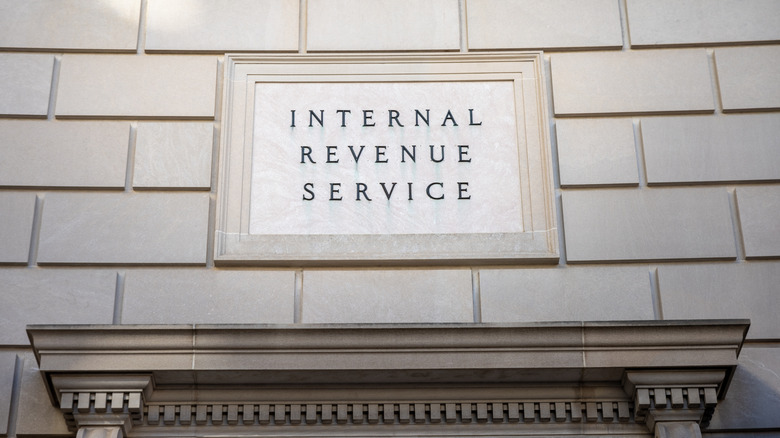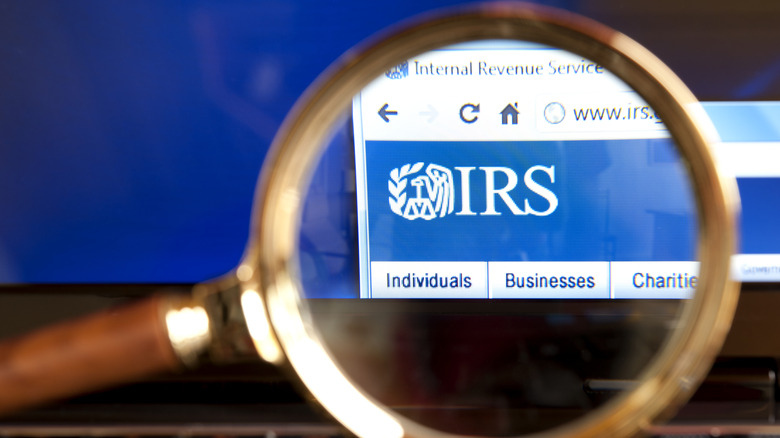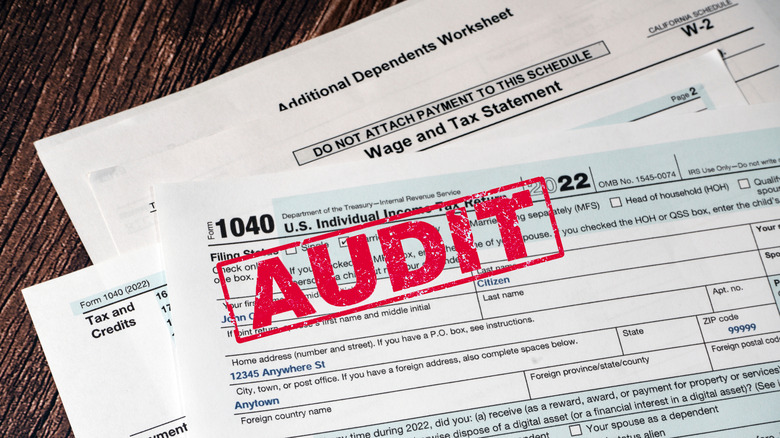The IRS Is 4 Times More Likely To Consider You For An Audit If You Make This Much Money
Audit rates dropped sharply — down 46% — between 2010 and 2018. The audit rate for individual tax returns went from 1.1% to just 0.6%, based on a Congressional Budget Office report. By 2022, the IRS Data Book 2024 showed only 0.4% of individual returns were actually examined. However, for high earners making over $500,000, your audit risk could be higher. According to the IRS' 2024 Data Book of 2022 tax returns, filers earning between $75,000 to $200,000 and $200,000 to $500,000 had a 0.1% audit rate while those earning between $500,000 to $1 million faced a 0.6% audit rate — significantly higher than middle-income taxpayers. For this reason alone, high earners should ensure they understand exactly what happens during an IRS audit.
The IRS has made going after wealthy taxpayers a primary focus. A 202 IRS press release revealed that the agency specifically targeted 1,600 millionaires who owes more than $250,000 in recognized tax debt. However, even with tougher enforcement, millionaires still have plenty of legal ways to lower what they owe. With that said, the IRS is increasingly focusing on audits that bring in the most money.
What puts high earners on the IRS' radar
Certain financial behaviors are major red flags that can get you audited by the IRS. Big deductions that seem out of place, mismatches between what you report and what third parties send, and even filing at the last minute without proper documentation can raise suspicions. Unfortunately, most taxpayers don't realize just how much these behaviors can increase their audit risk. The IRS runs statistical formulas to compare your return against the norm. If your return strays too far from this, it gets flagged for human review.
Foreign assets can be another major trigger. IRS Form 8938 requires you to report foreign assets above certain amounts. Single filers need to report if foreign assets hit $50,000 on the last day of the tax year or $75,000 at any point during the year while married couples filing jointly must report for $100,000 on the last day or $150,000 during the year. With that said, make sure to get your foreign bank account reporting correct or you could trigger IRS flags.
Charitable donations and Schedule C (for sole proprietors and freelancers) business activities can also bring more audit risk. The IRS tracks average charitable donations by income level, so unusually large deductions stand out. You can still claim legitimate tax breaks, but Schedule C filers can recieve extra scrutiny when they report big business losses that wipe out other income. Also, cash transactions over $10,000 without the right Form 8300 can similarly trigger audits.
Tips to avoid IRS audit trouble
Solid record-keeping can turn an IRS audit from pure stress into something manageable. Plus, you're actually supposed to keep your tax records as long as they might be needed for any IRS questions — at least three years. The trick is knowing exactly what paperwork the IRS might want and having it ready before any problems arise. Keep mileage logs, 1099s, donation letters, and anything that proves the numbers on your return. On that note, you should think twice before throwing out your receipt since even minor expenses can add up during audits. Keep physical copies too, sorted by tax year and category. Plus, remember to write quick notes on receipts explaining why it was a business expense before filing it away. If you work from home, this can becomes crucial for home office deductions since you need detailed expense tracking.
Keep all related documents together and match credit card statements with receipts when possible. You can also attach business trip itineraries to hotel and meal receipts. If you lose your records, don't panic. The IRS will accept reconstructed records using bank statements, vendor records, or sworn statements, but they do want to see that you put effort into rebuilding any lost accounting.


